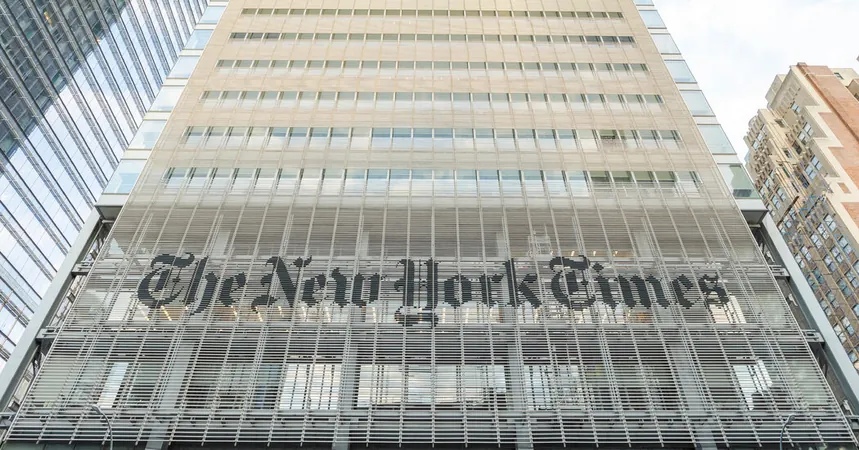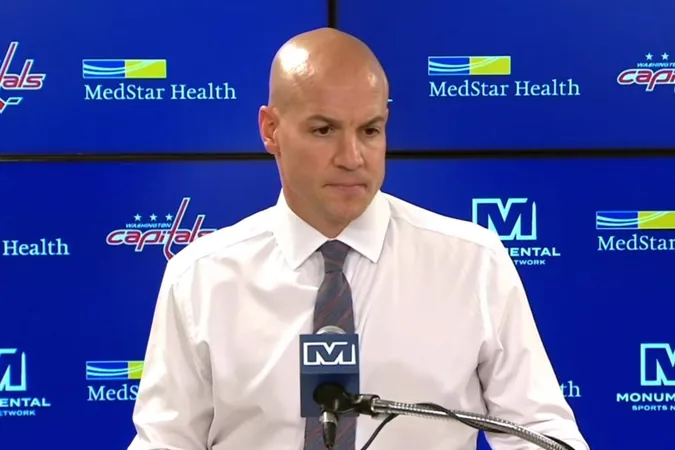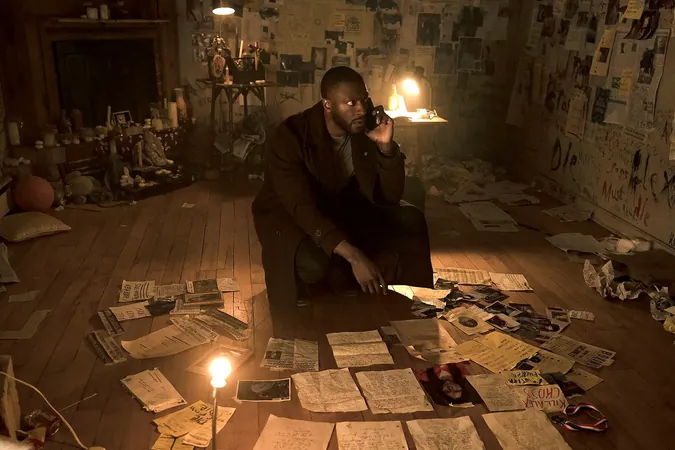
Court Showdown: New York Times Challenges European Commission Over Vaccine Deal Text Messages
2024-11-15
Author: Ken Lee
Overview of the Legal Battle
In a groundbreaking legal battle, The New York Times presented its case on Friday against the European Commission, demanding the release of text messages exchanged between key figures involved in the negotiation of a monumental Covid-19 vaccine deal with Pfizer. The stakes of this lawsuit extend far beyond the messages themselves, potentially reshaping the concept of transparency within the European Union's governmental processes.
Core Dispute
The core of the dispute lies in the classification of these text messages—are they official documents subject to public scrutiny under transparency laws? This legal question could set a critical precedent for how future communications are classified within EU governance.
Argument for Transparency
"Transparency and public access to government documents are essential for democratic oversight," argued Bondine Kloostra, The Times' attorney, emphasizing that this case highlights whether officials can sidestep transparency by relying on text messages instead of formal documentation. This lawsuit stems from a freedom-of-information request made by The Times last year, seeking insights into discussions between Ursula von der Leyen, the president of the European Commission, and Pfizer's CEO, Albert Bourla, during their negotiations for a massive vaccine procurement contract. The deal is considered one of the largest in the EU's history, involving the purchase of 1.8 billion doses.
European Commission's Defense
Legal representatives from the European Commission, however, claimed they could not locate any relevant text messages. Paolo Stancanelli, representing the Commission, contended in court that if important text messages had existed, they would have been documented. Stancanelli asserted that the negotiations were not conducted via texts, arguing their ephemeral nature and lack of substance.
Court Proceedings
As the case unfolded before a panel of 15 judges at the General Court in Luxembourg, answers to pressing transparency questions remained elusive. Concerns have risen significantly regarding how taxpayer funds have been utilized amidst allegations that the Commission encouraged staff to use disappearing messages. Kloostra highlighted that no evidence had been provided regarding whether a thorough search of von der Leyen's devices had been conducted.
Judge's Inquiry
An interesting interaction took place when Judge Krisztian Kecsmar questioned the Commission’s legal counsel about the platform used for the messages. Stancanelli admitted he was unaware, prompting the judge to express skepticism about the Commission's search efforts. "How can we understand the extent of the Commission's inquiry if they don't even know which platform was used?" Kecsmar remarked.
Context of the Vaccine Deal
The context surrounding the vaccine deal adds further weight to the case. During the critical negotiations, Europe was grappling with stringent pandemic restrictions and a sluggish vaccine rollout that attracted widespread criticism towards von der Leyen. Reports from April 2021 suggest that Bourla and von der Leyen utilized text messages and phone calls extensively during their negotiations, presenting a stark contrast to the current insistence on the lack of substantial content in those messages.
Implications of the Case
The outcome of this case could have profound implications not only for public access to information but also for the accountability of EU leaders in their negotiations with major pharmaceutical companies. With the public’s trust hanging in the balance, this legal battle is set to define the future of governmental transparency in the European Union. A ruling is anticipated in the coming months, and its impact could resonate across various levels of public governance and trust.
Conclusion
Stay tuned as we track this evolving story—the stakes could not be higher!



 Brasil (PT)
Brasil (PT)
 Canada (EN)
Canada (EN)
 Chile (ES)
Chile (ES)
 España (ES)
España (ES)
 France (FR)
France (FR)
 Hong Kong (EN)
Hong Kong (EN)
 Italia (IT)
Italia (IT)
 日本 (JA)
日本 (JA)
 Magyarország (HU)
Magyarország (HU)
 Norge (NO)
Norge (NO)
 Polska (PL)
Polska (PL)
 Schweiz (DE)
Schweiz (DE)
 Singapore (EN)
Singapore (EN)
 Sverige (SV)
Sverige (SV)
 Suomi (FI)
Suomi (FI)
 Türkiye (TR)
Türkiye (TR)